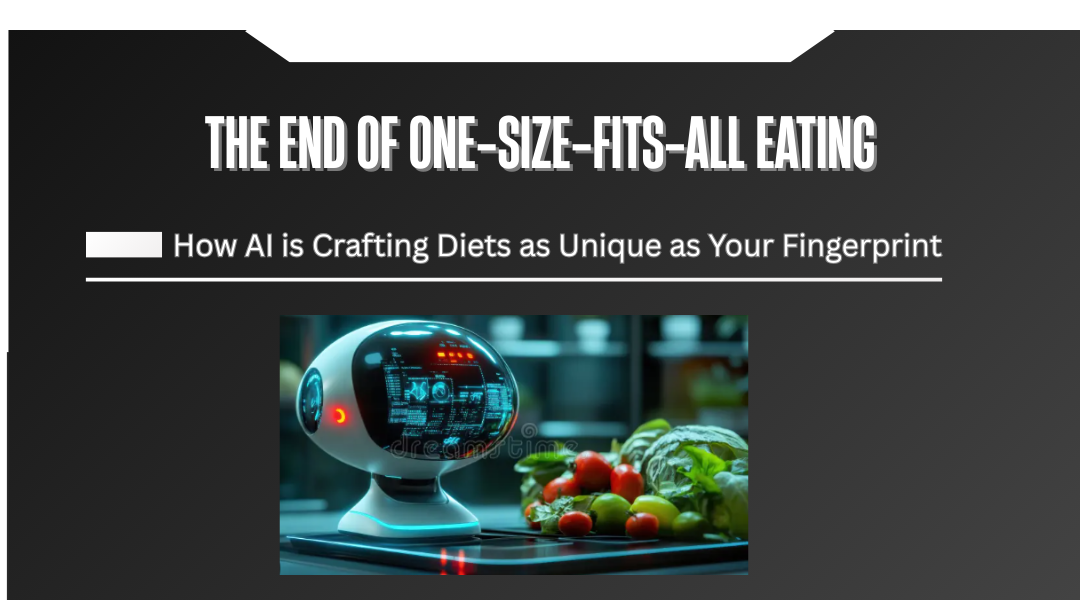The Breakfast That Knows You Better Than You Do
Imagine waking up to a meal plan that doesn’t just account for your food allergies or weight goals—but your DNA, your gut bacteria, even how well you slept last night. This isn’t science fiction. Across the world, nutritionists and tech innovators are quietly revolutionizing the way we eat, using AI to turn vague dietary advice into hyper-personalized food strategies.
Forget calorie counting apps. The next generation of food tech doesn’t just track what you eat—it predicts what your body needs.
How Machines Are Learning to Feed Us
The old model of nutrition was blunt: food pyramids, generic “2,000-calorie” guidelines, and meal plans recycled for millions. Today’s AI-driven systems work differently. They cross-reference:
- Your biology: Genetic tests revealing whether you metabolize fats efficiently or need extra vitamin D
- Your daily rhythms: Sleep tracker data showing when your cortisol spikes, suggesting the ideal time for protein
- Even your microbiome: Gut bacteria analyses that pinpoint which fibers will reduce bloating for you specifically
Startups like ZOE (founded by scientists from King’s College London) combine continuous glucose monitors with stool samples and meal logging to explain why one person gains weight from bananas while another thrives on them.
The Silent Experiment Happening in Kitchens Everywhere
Early adopters are seeing radical shifts:
- A Type 2 diabetic in Texas discovered through AI analysis that her “healthy” oatmeal breakfasts caused sharper blood sugar spikes than eggs with avocado—reversing her reliance on medication within months.
- A marathon runner in Norway optimized his carb loading using a system that adjusted portions based on his sweat sodium levels from his smartwatch.
- A busy mom in Tokyo gets weekly grocery lists from an app that syncs with her kids’ school schedules, ensuring energy-boosting snacks during exam weeks.
The Dark Side of the Algorithmic Plate
Not everyone’s convinced. Critics point to real risks:
- The “Lab Rat” Effect: When an app tells you to eat kimchi at 11:03 AM because your microbiome score dropped, where’s the joy in food?
- Data Hunger: Some services demand access to your fitness tracker, DNA results, and even social calendar—raising privacy concerns.
- The Kale Problem: If an AI’s training data came mostly from affluent health nuts, might it push expensive superfoods over affordable, equally nutritious options?
Dr. Priya Kumar, a gastroenterologist at Johns Hopkins, warns: “These tools are powerful, but they’re not omniscient. I’ve had patients who developed orthorexia because an app labeled tomatoes as ‘high risk’ for them.”
Where Humans Still Outsmart Machines
The best systems today use AI as a collaborator—not a dictator:
- ChefBot (a Paris-based startup) suggests recipes based on your biomarkers but lets you veto ingredients you hate.
- NutriSense pairs AI with real dietitians who interpret the data, catching when “optimal” suggestions clash with a patient’s cultural food traditions.
The Future Tastes Like…
What’s coming next will make today’s apps look primitive:
- Dynamic Menus: Restaurants where your table’s QR code pulls up dishes tailored to your latest bloodwork.
- Precision Fermentation: AI-designed probiotics that produce vitamin B12 in your gut specifically.
- Mood Foods: Algorithms that adjust your omega-3 intake based on stress levels detected in your voice during phone calls.
The Bottom Line
We’re entering an era where “eat right for your type” doesn’t mean blood types—it means you, in all your biochemical uniqueness. The challenge won’t be getting the tech to work… but remembering to sometimes ignore it and just eat the damn birthday cake.
